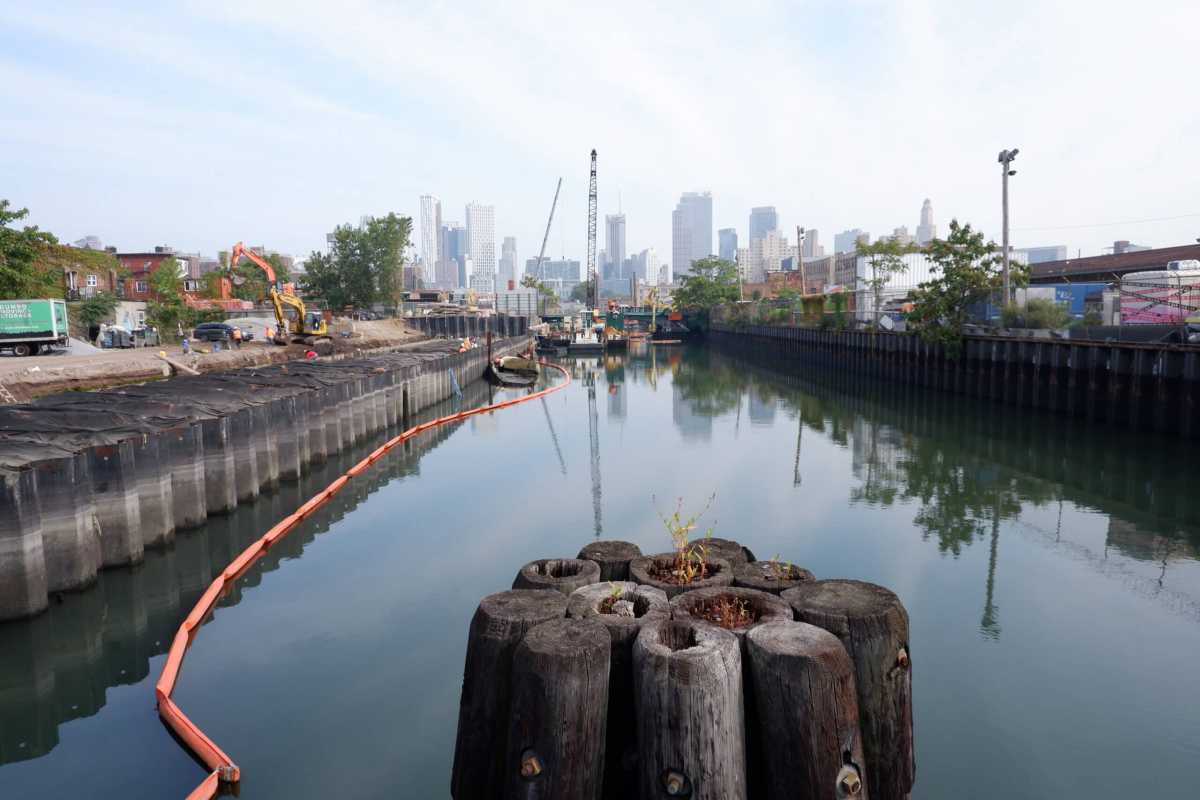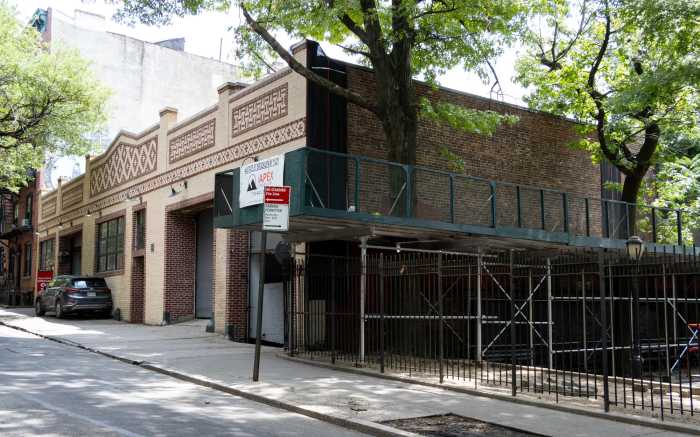The Gowanus rezoning is again on hold after a Brooklyn judge paused the neighborhood-wide proposal’s public review on Friday — saying she’d halt the plan until the court approves combined virtual and in-person meetings on the scheme.
Supreme Court Justice Katherine Levine paused the 60-day time limit for local community boards 2 and 6 to weigh in on the rezoning as part of the Uniform Land Use Review Procedure until the court approves the Department of City Planning’s “hybrid” hearing slated for next month.
“The official mandated hearings before CB 2 and 6 in connection with such ULURP Application shall not proceed or be noticed until the Court has approved the more detailed plan fo [sic] the supplemental hearing,” wrote Levine in the May 7 order, which Patch first reported.
Judge Levine’s decision comes after she lifted a three-month temporary restraining order and let the massive rezoning’s public review officially begin on April 19, which also started the clock for the civic boards to give their purely advisory recommendation on the plans as part of ULURP within 60 days, or by June 18.
DCP had worked with both boards and submitted plans on April 28 to the court proposing to hold a Zoom and in-person meeting on June 3, which officials plan to broadcast for an audience outside the Old Stone House on Third Street, between Fourth and Fifth avenues in Park Slope, according to court filings.
The groups opposing the rezoning Friends and Residents of Greater Gowanus and Voice of Gowanus — who sued the city in January claiming the plans to hold all ULURP meetings virtually were illegal under city law – wrote to the judge on May 5, saying the recent announcements by Mayor Bill de Blasio and Gov. Andrew Cuomo’s about the city’s full reopening and lifting of COVID restrictions should also usher in more in-person hearings.
“Public hearings on massive, neighborhood-changing land-use proposals such as the Gowanus plan must be permitted to ‘reopen,’ along with the rest of the City, with all applicable health protocols, such as social distancing and mask-wearing,” wrote the groups’s attorney Jason Zakai.
The massive rezoning proposal promises to enable the creation of 8,500 new housing units, including some 3,000 below market rate, in the gritty neighborhood by 2035.
Supporters of the rezoning, a group which intervened in the court proceedings in April dubbed Gowanus Owners, Residents, and Workers, argued the opponents were just trying to again stall the ULURP’s progress.
“In the name of seeking greater democratic access, Petitioners are—again—seeking to delay public consideration of the rezoning by asking the Court to question the public health measures taken by elected officials,” wrote GROW’s attorney Ken Fisher.
But Levine partially sided with FROGG and VOG, granting them a pause and demanding the city put forth a detailed plan by Monday.
Officials filed their hearing protocol that same day, which showed the meeting will be held on the afternoon and evening of June 3 with a back-up date set for June 10 in case of bad weather.
The hearing, to be presided over by either one or both chairpeople of the community boards’s land use committees, will start at 3:30 pm and last until 10 pm at the park and 11 pm online.
The Zoom will allow for 1,000 participants, while DCP will set up at least 75 socially-distant chairs on the Washington Park side of the Old Stone House.
Only people registered for the meeting will be allowed in that area of the lawn, and in-person attendees will have to comply with government health guidance and fill out a health check questionnaire to attend.
The city Parks and Police departments will also be at the hearing to help manage the hearing.
The hearing will be live-streamed through DCP’s YouTube channel and via television on BRIC TV. DCP will also provide equipment at the park for people to testify for two minutes if they can’t do so with their own device.
However, the city will disable the Zoom’s chat function to “maintain decorum and ensure questions asked by members of the public are addressed,” the protocol reads, noting that recent public Zoom meetings were disrupted by people writing “inappropriate remarks.”
Officials argued that turning off the chat feature is similar to asking attendees to hold conversations outside the venue during in-person meetings.
Advance phone registration will open the end of the month, with online registration for both meetings launching on the day of the meeting, according to the plans.
Judge Levine has yet to approve the city’s plans, but city lawyers pleaded with her Friday to respond no later than Tuesday, May 11, to allow for the community boards to publicly inform all their members and the public at their scheduled full board meetings on Wednesday May 12.
























